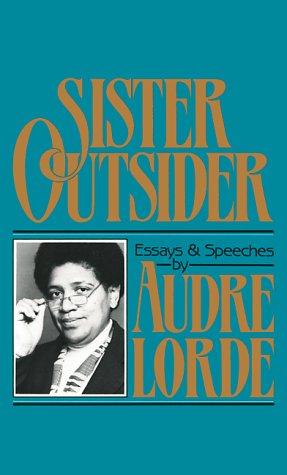 In this, the third in our series on #BadFeelings, exploring negative emotions, the philosopher Mary Carman looks at the meaning and value of anger.
In this, the third in our series on #BadFeelings, exploring negative emotions, the philosopher Mary Carman looks at the meaning and value of anger.
Mary is a member of Thumos, the Genevan Research Group on Emotions, Norms and Values at the Swiss Centre for Affective Sciences, University of Geneva.
 The feminist activist and poet, Audre Lorde, famously wrote in her essay ‘The uses of anger’ that:
The feminist activist and poet, Audre Lorde, famously wrote in her essay ‘The uses of anger’ that:
The angers between women will not kill us if we can articulate them with precision, if we listen to the content of what is said with at least as much intensity as we defend ourselves against the manner of the saying. When we turn from anger we turn from insight, saying we will accept only the designs already known, deadly and safely familiar. I have tried to learn my anger’s usefulness to me, as well as its limitations.
Political anger, anger in response to injustice, can undeniably be a useful emotion as Lorde discusses. It motivates us to act, serves to unify us in fighting certain causes, and can even be important for our sense of self-worth and -respect. Defences of the value of anger, like these, have long been made in feminist literature and in political spheres more widely. At the same time, many people remain hesitant about the value of anger, especially in political contexts. Anger is often problematic in the way that it undermines meaningful dialogue or the way in which the angry person seems irrational – over-reacting, making mountains out of molehills, not engaging with the world in a sufficiently unbiased manner. Have the defenders of anger sufficiently addressed this worry and, in particular, the latter worry that the angry person is somehow being irrational?
When we look at the philosophical literature that focuses on the rational value of anger, we find a common theme. Anger, it is claimed, has rational value because of the way in which it is a response to injustices. Because anger, like other emotions, can be assessed for fittingness, it can be apt or not apt depending on whether a situation really does instantiate an injustice. Through being responsive in this way, the arguments progress, we can learn from anger: we learn about ourselves and about others – what our and others’ values are – but we can also learn about the evaluative world: we learn that here, now, things are unjust.
Recognising the role that anger can have in our coming to gain knowledge and understanding about the evaluative world is itself an important gain. It does not, however, get to the heart of the all-too-common complaint that the angry person is somehow irrational. We can be responsive to genuine injustices; we can experience anger that is fitting, apt, morally appropriate and a manifestation of self-respect. And yet we can still be unduly biased, too hasty in our decisions, too hasty to find fault in others and not in ourselves.
Drawing on empirical work on the effects of anger on decision-making and judgements in choice situations helps to flesh out what exactly this kind of complaint against anger is. Anger, the evidence suggests, has effects on both the processes and outcomes of our decision-making processes. It focuses our attention on things that reflect our anger; it encourages us to attribute blame to others, with a sense of confidence and certainty in ourselves; anger tends towards more risk-willingness; and angry thinking, unlike sad thinking, tends to be heuristic in nature.
If we apply these findings to a paradigmatic rational process like inquiry, we see that anger can be problematic in introducing undue bias, in undermining the coherence and consistency in our views through encouraging attribution of blame to others and not ourselves and through encouraging shallow examination of our ideas. Overall, we might worry that the lack of self-critiquing that tends to accompany anger creates problems for our rational values that require coherence, consistency and rigour in our own thinking. This, or so it seems to me, gets at the heart of the complaint that anger is problematically irrational, and it does so in a way that is independent of whether or not our anger can have other value in our lives.
Not all is bad, however. In my paper at the Negative Emotions conference, I proceeded to argue that anger can also have good effects on our thinking. For instance, and as feminist theorists have long argued, anger can draw our attention to injustices that we might otherwise overlook. The risk-willingness that accompanies anger may encourage us to proceed with lines of inquiry that are controversial or go against a status quo. And the optimism for one’s future and sense of control that accompanies anger can encourage resilience and productivity that can ultimately lead to progress, both in one’s own thinking but also in the shared knowledge base of a community as a whole.
Further, empirical studies suggest that there are mitigating techniques that are effective in counteracting unwanted effects of an emotion like anger, techniques such as reappraising the original emotional stimulus, inducing countervailing emotions, making use of choice architecture, or increasing awareness of the misattribution effects. We can expect all of these, to greater and lesser extents, to be applicable in political scenarios where anger is rife. In particular, increasing awareness of the misattribution effects of anger through being pre-emptively self-critical by expecting to justify oneself to an expert audience seems especially promising. Of course, this requires seeing one’s opponents as an expert audience, which requires seeing opposing views to one’s own as legitimate. This places an important limitation on when anger can be rationally defensible: not all cases of dogmatic anger will pass the test.
If all of this is right, then we have the tools to hand to counter the objection that the angry person is being necessarily irrational. In fact, in many typical scenarios of political anger, such as the anger of members of marginalised and oppressed groups, we have good reason to suppose that the angry are indeed motivated to and are making use of mitigating techniques to a certain degree. We thus do need to take the anger of others seriously.
With all of this in mind, other questions about anger then start to arise. What, for instance, should we say about rage and about mild indignation? What if anger not only is responsive to injustices but instantiates an important form of understanding injustice – how do we balance all the different aspects to the value (and disvalue) of anger? What if we choose to be ‘irrational’ in order to capitalise on other aspects of our anger in order to achieve some goal, where does that leave the rational status of our anger? In any event, Audre Lorde is quite right: we must learn both the uses and our limitations of our anger, and doing so can be for the benefit of ourselves and of others around us.
Read more about anger on the History of Emotions blog.
Further reading
Defences of anger:
- Audre Lorde (1981). ‘The uses of anger’. Reprinted in Sister, Outsider (2007). Berkeley: Crossing Press, pp. 124-33.
- Uma Narayan. (1988). ‘Working together across difference: Some considerations on emotion and political practice’. In Hypatia2, pp. 31–47.
- Eusebius McKaiser (2015). ‘Anger misunderstood’. In Run Racist Run. Johannesburg: Bookstorm, pp. 103-113.
- Amia Srinivasan (forthcoming). ‘The Aptness of Anger’. In Journal of Political Philosophy.
Reviews of empirical work of effects of anger and emotion on decision-making :
- Jennifer Lerner and Larissa Tiedens (2006). ‘Portrait of the angry decision maker: How appraisal tendencies shape anger’s influence on cognition’. In Journal of Behavioral Decision Making2, pp. 115–137.
- Jennifer Lerner, Ye Li, Piercarlo Valdesolo et al. (2015). ‘Emotion and decision making’. In Annual Review of Psychology1, pp. 799–823.
